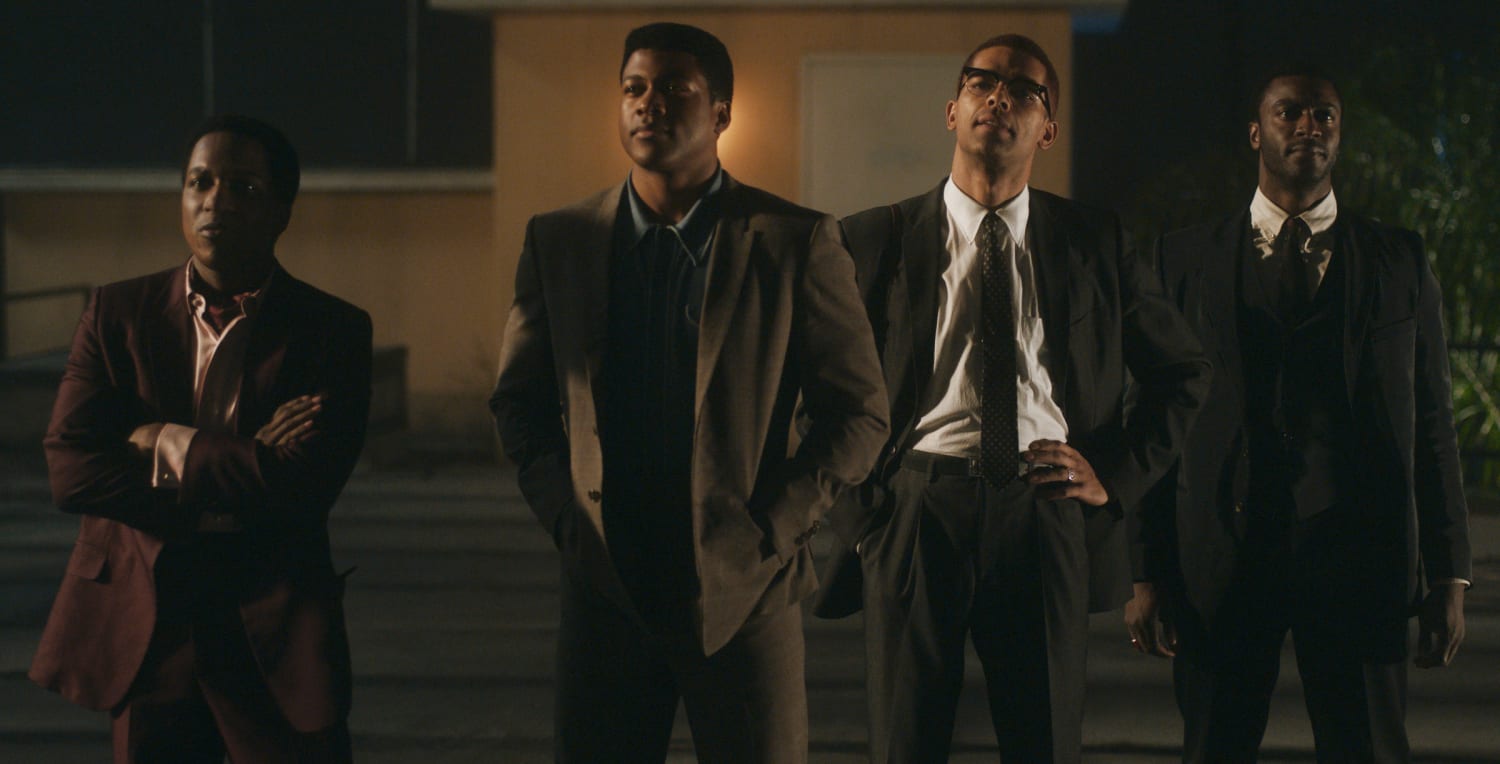[ad_1]

It’s hard to believe, given that time has no meaning in 2020, but Oscar season is officially here. And at the top of the list is “One Night in Miami,” Regina King’s stunning feature film directorial debut. Based on the play by Kemp Powers, who also adapted the screenplay, the film tells the fictionalized story of what happened the night Malcolm X (Kingsley Ben-Adir), Cassius Clay (Eli Goree) — who would soon become known as Muhammad Ali— Jim Brown (Aldis Hodge), and Sam Cooke (Leslie Odom Jr.) spent together in 1964 Miami, celebrating Clay’s win at the world heavyweight championship. The entire film takes place over the course of a handful of hours, most of it spent within the confines of Malcolm X’s modest hotel room.
It’s hard to believe, given that time has no meaning in 2020, but Oscar season is officially here. And at the top of the list is “One Night In Miami.”
The film starts by introducing each character separately, setting the audience firmly in this specific time and place, and introducing how each character operates as a successful Black man in a white man’s world. It’s a relatively traditional start to an ensemble period piece. In fact, there are many aspects of “One Night In Miami” that feel like classic Hollywood. The steady camera work, the costume design, the editing — it’s polished, sophisticated and refined. It’s not particularly surprising in technique, but by not pushing the envelope too much in terms of style, King puts the emphasis where it belongs: these four extraordinary men.
King, herself an Oscar-winning actor, takes a steady approach to directing, giving “One Night In Miami” just enough visual flair to give the adaptation life beyond the hotel room setting. And she is clearly adept at getting the best from her performers. Goree is particularly eye-catching, full of charm and grace, as a boxer struggling to commit to his faith at the height of his career. It’s a performance that should set him up as one of Hollywood’s Next Big Stars. Hodge, who plays a Jim Brown who is quietly frustrated with the code-switching his celebrity status requires, is also particularly engaging in his physicality.
Unfortunately, both actors may end up overshadowed by Ben-Adir, whose Malcolm X voice is impressive, and Odom Jr., who, let’s face it, could make a live reading of the phone book sexy. It’s Ben-Adir and Odom Jr. who take on the brunt of the monologues, and who are tasked with delivering the ideological conflict at the heart of “One Night In Miami.” And yet, while they deliver solid performances, it’s Goree and Hodge who audiences won’t be able to turn away from.
Throughout the film, Malcolm X and Sam Cooke argue about how best to advance Black communities in the ‘60s. For Sam, it means giving Black people financial power and a chance to achieve success within a world controlled by white people. But Malcolm X doesn’t believe this strategy will lead to real equality. The crux of their ongoing fight should feel familiar — from the debates about the efficacy of the“defund the police” slogan to how best to win and govern as Democrats, social movements have to decide whether it’s best to try to work within the system or create a new system entirely.
This question is (perhaps unsurprisingly) similar to the philosophical question at the heart of Aaron Sorkin’s “The Trial of the Chicago 7” on Netflix. “Chicago 7”, which is itself another Oscar contender, pits the more radical progressive activist Abbie Hoffman (Sacha Baron Cohen) against the more practical liberal Tom Hayden (Eddie Redmayne).
In addition to tackling similar themes, “The Trial of the Chicago 7” also follows the traditional period biopic structure as “One Night in Miami.” It opens with the same montage of character introductions, and, like “One Night in Miami,” is set mostly in just a few locations — a courthouse and the Students for a Democratic Society offices (the organization co-founded by Hayden that mobilized students across the country in the ‘60s, with a heavy focus on protesting the Vietnam War). It also takes place in 1968, just four years after “One Night in Miami.” Of course, the two films tell drastically different stories, but the thematic and structural similarities stand out precisely because of their differing subjects.
But importantly, “The Trial of the Chicago 7” is painfully white and male. It’s a well-executed example of the traditional Oscar bait genre — a movie based on real events — used to romanticize white heroism. And that’s ultimately what makes it so mediocre. In contrast, “One Night in Miami” (which, to be fair, is also very male) uses that same genre to spotlight Black icons and thought through a Black American lens. “The Trial of the Chicago 7” should represent the past of these based on true events, civil rights-era films — whitewashed and familiar. And “One Night in Miami” should be the future — fresh and immediate stories from underrepresented perspectives.
[ad_2]
Source link